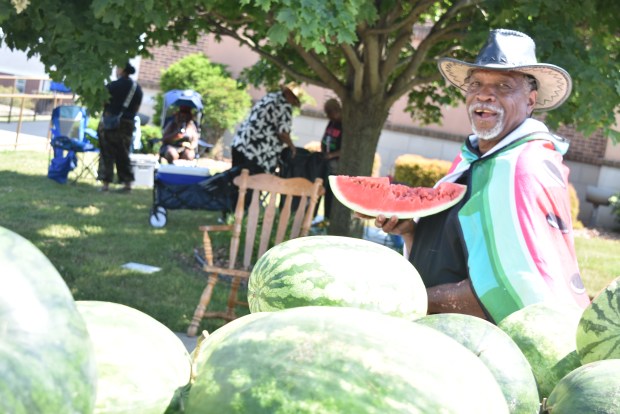Orland Park officials gave tentative approval for the 2025 budget and approved the property tax levy for the coming year.
The budget for 2025, starting Jan. 1, anticipates revenues from sources such as property taxes and sales taxes at $151.3 million.
Including fund transfers and proceeds from bond sales, total revenue for the coming year is estimated at $237 million, according to the tentative budget approved at Monday’s Village Board meeting.
Final approval is expected to come at the Dec. 16 board meeting, and the budget will undergo some “tweaks” but remain largely unchanged, Mayor Keith Pekau said at Monday’s meeting.
Expenditures for the coming year are set to be $215.2 million, according to the tentative budget.
The village expects that fund balances available at the end of this month, the end of the budget year, will be $72.8 million and carried over into the new budget year.
Fund balances at the end of 2025 are expected to be $52.4 million, according to the village.
A full summary of revenue and expenses for the coming year was not immediately available from the village’s website.
Orland Park has used a combination of borrowing from fund balances and issuing bonds for capital spending such as street improvements and renovating village parks.
“We’ve done a lot in the last five years,” Pekau said.
The board approved the property tax levy for taxes paid in 2024 and collected in the coming year.
The village’s portion of the overall levy, set at $20.4 million, will be $13.3 million, down a bit more than $125,000 from this year’s levy, for taxes assessed in 2023.
Although Orland Park’s public library approves a levy, which is up just under 1% for the coming year, it is also approved by the Village Board.
The library’s levy was $6.8 million this year, for taxes assessed in 2023, and will increase to $7 million in 2025.
Taxes are assessed against the total value of all property in Orland Park, estimated to be $3 billion, nearly unchanged from 2024.
Pekau said the ultimate goal is to have the village’s portion of a property owner’s tax bill to be 5%, and “we’re getting pretty close,” although the percentage has been closer to 7% in recent years.
Reducing the levy is part of the village’s five-year strategic financial plan, aimed at reducing the burden on taxpayers.
That, however, is also resulting in a new tax on electric and natural gas bills as well as an increase that kicked in at the start of this year in the village’s home-rule sales tax.
Property owners in Orland Park and throughout the south and southwest suburbs are seeing higher tax bills due to a reassessment of properties this year by the Cook County assessor’s office.
Through 2027, the village proposes issuing $60 million in bonds to finance projects such as improving streets, parks, and water and sewer infrastructure, but paying principal and interest on that new debt is expected to be covered by property taxes along with new revenue sources, such as the utility tax and higher local sales tax.
The utility tax is estimated to generate $3.5 million to $3.9 million annually, and the village estimates the average resident will see an increase of $12.55 per month between gas and electric costs.
The home-rule sales tax, in place since 2002, is 0.75% and rose to 1.25% starting Jan. 1 of this year. The home-rule sales tax doesn’t apply to groceries or medicine.
Orland Park’s overall sales tax rate had been 10% and increased to 10.5% at the start of this year.
The village estimates the half-point increase would bring an additional $7.6 million in revenue annually. According to the village, shoppers from outside of Orland Park generate 60% of revenue from the home-rule sales tax.
Sales taxes represent the largest revenue source for the village, accounting for more than 40% of annual revenue, compared with about 17% being derived from property taxes and about 15% from income taxes.




